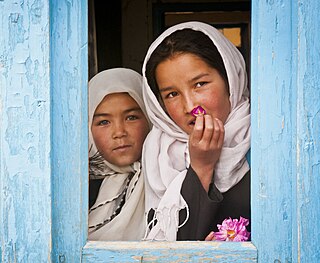
The Hazaras are an ethnic group and a principal component of the population of Afghanistan. They are one of the largest ethnic groups in Afghanistan and primarily residing in the Hazaristan (Hazarajat) region in central Afghanistan. Hazaras are also as significant minority groups in Pakistan mainly in Quetta and Iran mainly in Mashhad. They speak the Dari and Hazaragi dialects of Persian. Dari, also known as Dari Persian, is one of two official languages of Afghanistan.
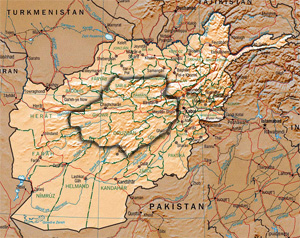
Hazarajat, also known as Hazaristan is a mostly mountainous region in the central highlands of Afghanistan, among the Kuh-e Baba mountains in the western extremities of the Hindu Kush. It is the homeland of the Hazara people who make up the majority of its population. Hazarajat denotes an ethnic and religious zone.
Kamran is a Persian male given name meaning 'prosperous, fortunate'. The name is commonly used in Iran and Azerbaijan, in addition to Bangladesh, Tajikistan, Afghanistan, Uzbekistan, and Pakistan. Variants include Kâmran, Kamron, and Kamuran.
Kabul Press is a news and discussion website from Afghanistan. Kabul Press is an important on-line Afghan media outlet with sections in Dari Persian and English updated daily. Editor Kamran Mir Hazar has been arrested twice by the Afghan secret police, prompting an outcry from international freedom-of-press organisations.
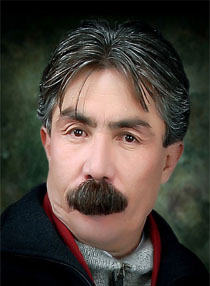
Hussain Ali Yousafi was an ethnic Hazara politician in Balochistan, Pakistan. Yousafi was chairman of the Hazara Democratic Party (HDP) and a member of the Quetta city council. He was assassinated by unknown militants in 2009.
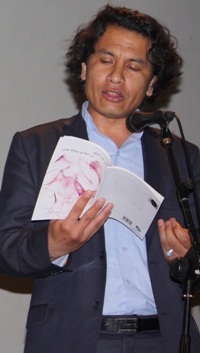
Kamran Mir Hazar is a Hazara Norwegian poet, journalist and human rights activist. He is the founder and editor-in-chief of Kabul Press and Refugee Face. He has won various awards for his work and critical reporting, including a Hellman/ Hammett grant from American Human Rights Watch in 2008 and Freedom award from Afghanistan Civil Society Forum in 2007. Kamran Mir Hazar is a member of The Norwegian Writers' Center.

Censorship in Afghanistan is a book by Hazara poet and journalist Kamran Mir Hazar. The book is written in the Dari language, and is the first book to explore the systematic suppression of free speech in Afghanistan that has been a feature of its ruling authorities for hundreds of years. Norwegian publisher IP Plans has published this book.

The Hazaras have long been the subjects of persecution in Afghanistan. The Hazaras are mostly from Afghanistan, primarily from the central regions of Afghanistan, known as Hazarajat. Significant communities of Hazara people also live in Quetta, Pakistan and in Mashad, Iran, as part of the Hazara and Afghan diasporas.
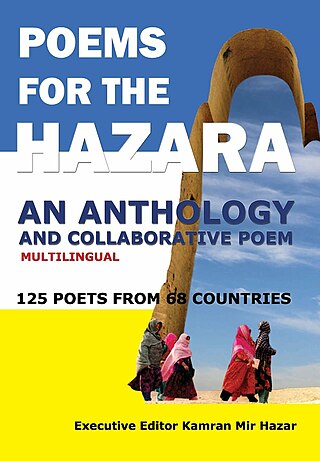
Poems for the Hazara is a multilingual poetry anthology and a collaborative poem composed of the works of one hundred twenty five internationally recognized poets from sixty-eight countries. Poems in this book are in English, Spanish, Catalan, Japanese, Norwegian, Turkish, Hazaragi, Italian, Greek, German, Irish, Hebrew, Romanian, French, Armenian, Hungarian and Portuguese. All non-English poems have been translated into English. "Poems for the Hazara" includes the poetry anthology and a collaborative poem featuring contributions from 23 international poets. An open letter from 354 celebrated poets including Nobel, Pulitzer, continental and national literary prize winners as well as presidents of PEN clubs, and writers associations from 97 countries is included at the end. This letter is addressed to world leaders in support of the Hazara people. The executive editor is Hazara poet, journalist and human rights activist, Kamran Mir Hazar.
The Hazara genocide occurred in the aftermath of the Second Anglo-Afghan War when the Afghanistan Emirate signed the Treaty of Gandamak. Afghan Amir Abdur Rahman set out to bring the Turkistan, Hazaristan, and Kafiristan regions under his control. He launched several campaigns in the Hazarajat due to resistance to oppression from the Hazaras, culminating in the Battle of Uruzgan and he conducted a widespread genocidal campaign against its population.
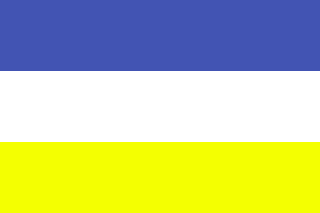
Hazara nationalism is a movement that claims the Hazara people, an ethnic group native to the Hazaristan region of Afghanistan, are a distinct nation and deserve a nation-state of their own. The movement propagates the view that Muslims are not a nation and that ethnic loyalty must surpass religious loyalty, though this view has been challenged by both the 1890s independence uprisings of Hazaristan and the systematic discrimination many Hazaras have historically faced within Afghanistan.

Muhammad Arif Shah Jahan is an ethnic Hazara politician, who was the former governors of Maidan Wardak and Farah provinces in Afghanistan and the former representative of the people of Ghazni province in the Parliament of Afghanistan.
The Tabassum movement was a grassroots protest movement in Afghanistan that held several protests in Kabul and other Afghan cities in mid-November 2015, following the execution by an armed opposition group of nine-year-old Shukria Tabassum and six other Hazaras around 9 November 2015. The protests were ethnically diverse, had strong participation and leadership by women, and the organisational structure avoided concentration of leadership.
Mawlawi Mehdi Mujahid was an Afghan Hazara rebel who led around 200 Hazara fighters during the Balkhab uprising. He was a Taliban commander before rebelling against the Taliban until he was killed on 17 August 2022.

On September 30, 2022, a suicide bomber blew himself up at the Kaaj education center in Dashte Barchi, a Hazara neighborhood in Kabul, Afghanistan, killing at least 52 and 110 injured The majority of the victims were young Hazara female students.

Abdulghafour Arezou is an Afghan writer, poet, Bīdelšinās, former ambassador of the Islamic Republic of Afghanistan to Tajikistan and former university professor. By 2014 he had written more than 40 books about Persian poetry and literature, culture, and politics and was called one of the most prominent writers of modern Afghanistan by the former president of Afghanistan Ashraf Ghani. For his contribution to culture and language, he was awarded the medal of Ghazi Mir Bacha Khan kohdamani and the Abolghasem Ferdowsi's artistic cultural emblem.
The Battle Of Unai Pass took place at Unai Pass in 1929, during the Afghan Civil War when the Saqqawist army was trying to cross the Unai Pass to subjugate the Hazaras of Jang Kala. The battle was from June 28 to July 10, and several raids and offensives after that until the fall of the Saqqawists. The Hazara volunteers from Jang Kala under the leadership of Fateh Mohammad Khan defended their positions and launched a few attacks on the Saqqawists in Jalrez and the surrounding areas. The hordes of the Saqqawist army were successfully repelled by the Hazaras and the Saqqawist army retreated after many of them got killed or got captured. This was one of the battles recorded between the Hazaras and the Saqqawists when trying to enter Hazarajat













